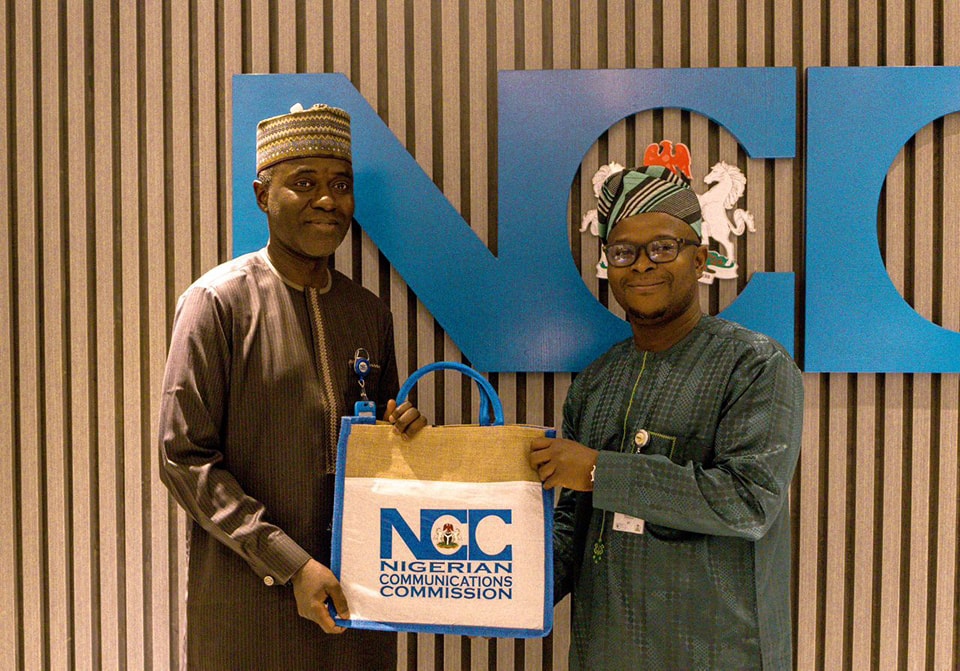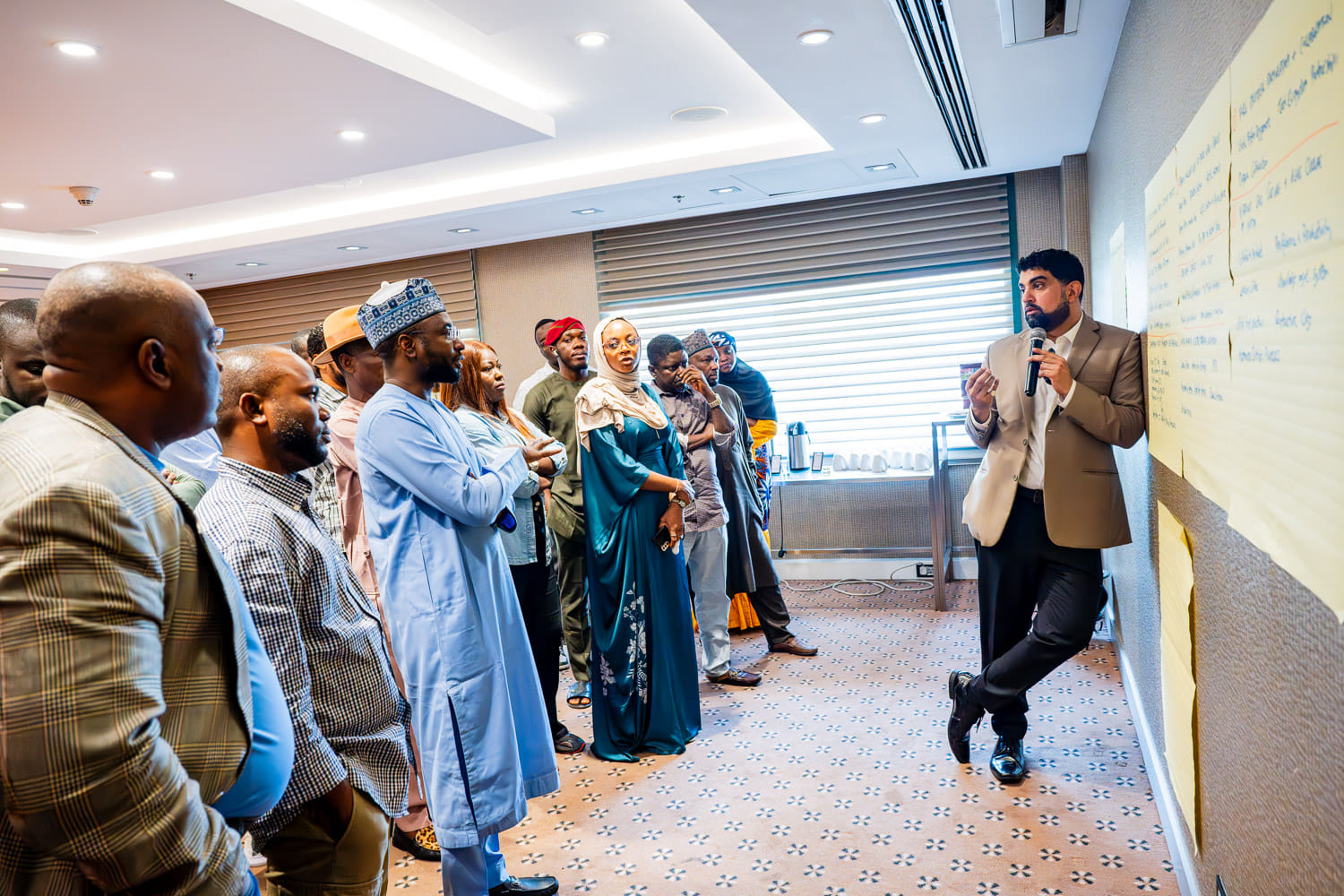Paper Delivered by Isa Ali Ibrahim Pantami, (Professor of Cybersecurity), Honourable Minister Federal Ministry of Communications and Digital Economy, Nigeria at the Nigerian Institute of Information and Communication Technology Engineers (NIICTE) Conference on Tuesday, 28th September 2021
All protocols observed.
May Peace, Mercy and Blessings be upon you!
I am delighted to deliver this address at the Conference of the Nigerian Institute of Information and Communication Technology Engineers (NIICTE). I wish to thank the leadership of NIICTE and the parent body (the Nigerian Society of Engineers- NSE) for the invitation to participate in this Summit. This attests to your commitment to promoting the practice and learning of ICT Engineering in Nigeria for innovative and economic development. This is quite important as we focus on developing Nigeria’s Digital Economy.
The Digital Economy
The digital economy has been defined in many ways by various individuals and institutions. The World Economic Forum and the Group of Twenty (G20) define the digital economy as “a broad range of economic activities comprising all jobs in the digital sector as well as digital occupations in non-digital sectors”. Digital economy also refers to any aspect of the economy that is based on or driven by digital technologies.
We have developed a National Digital Economy Policy and Strategy for a Digital Nigeria. It outlines our approach for the development of our indigenous digital economy and it is based on 8 very important pillars. ICT engineers have a role to play in the development of each pillar and the implementation of the initiatives in each of the pillars.
The Symbiotic Relationship Between Engineering and the Digital Economy
Engineering has evolved over the years and now enjoys a thriving symbiotic relationship with the digital economy. These days, engineering training is significantly enhanced by the aid of digital technologies. For example, it is not uncommon for today’s engineer to have training that includes digital modeling, mechatronics, additive technologies, artificial intelligence and cybersecurity, to mention but a few.
The importance of practical work and having a hands-on-experience cannot be over-emphasized in engineering. The Oxford Learners Dictionary reflects this in the definition of engineering as “the activity of applying scientific knowledge to the design, building and control of machines, roads, bridges, electrical equipment, etc.”. The terms designing, building and control require practical work. However, the physical equipment required for this are usually very expensive and there is the fear that they can get damaged. Virtual instruments and simulation software significantly reduce the cost and mitigate the risks associated with the use of equipment for training engineers.
Application and Impact of Digital Technologies
Digital technologies such as Artificial Intelligence, Robotics, Autonomous systems, 3D Printing, Virtual Reality, Cloud computing, Internet of Things, and Block chain Cloud have a boundless range of applications in various sectors of the economy such as health, agriculture, environment, energy, trades, tourism etc, and can be used to drive competitiveness and productivity in these sectors to influence economic growth.
For example, Artificial Intelligence is being widely used in developed countries to spot disease outbreaks and issue location-specific alerts. 3D printing techniques are currently being used in the health and building industry. In addition, artificial intelligence and predictive analytics have become the backbone of superb customer service. Microsoft projects that a staggering 95% of customer interactions will be backed by AI algorithms by 2025. We have established a National Centre for Artificial Intelligence and Robotics (NCAIR) to identify and develop our indigenous talent in the area of emerging technologies.
Digital technologies are a major driver of productivity and economic growth. A study by PricewaterhouseCoopers (PwC) estimates that global GDP may increase by up to 14 % (the equivalent of US$15.7 trillion) by 2030 as a result of the accelerating development and take-up of AI. The report anticipates the next wave of digital revolution to be unleashed with the help of the data generated from the Internet of Things (IoT), which is likely to be many times greater than the data generated by the current ‘Internet of People’.
A similar analysis shows that blockchain technology has the potential to boost global Gross Domestic Product by $1.76 trillion over the next decade. This shows the huge impact that the adoption of digital technologies could have on the global economy.
Digital technologies have led to a shift from the traditional economy into the digitalized one and this digital transformation of the economy has led to economic prosperity around the world. The global digital economy has been growing substantially faster than the non-digital economy and is projected to account for a quarter of the global economy in the next 10 years.
In addition, according to a 2015 Report by the Organisation for Economic Co-operation and Development (OECD, economic sectors with high levels of ICT factor intensity grew 1.7 times faster than the average growth rate of the economy across OECD countries. Similarly, the World Economic Forum predicts that over 60% of global GDP will be digitized by 2022 and that over the next decade, digital platforms will be used to create close to 70% of new value.
Role of ICT Professionals in the pillars of NDEPS
Without doubt, the Digital Economy is a core driver of innovation and economic growth. However, no nation can build a Digital Economy without a constant pool of highly qualified creative talent, as the digital economy is knowledge-based and is characterized by dependence on a highly-skilled, and technology-inclined citizens.
ICT Engineering skills is a crucial component for the development of the complex systems that enable and support the Digital Economy.
Professional ICT engineering input is required at many different levels, and in a multitude of ways, in order to crystallise the vision, strategy, and delivery of a robust national digital economy. As such, there is an important link between ICT engineering capacity and the economic development of any nation.
Pillar #1 on Developmental Regulation requires the support of ICT engineers as key stakeholders in ensuring that the regulations that are developed are can be successfully implemented. We adopt a rule making process that ensures that we carry stakeholders along.
Pillar #2 on Digital Skills is an obvious area that ICT Engineers can support in the growth of the digital economy. We need to foster and support the capacities of ICT professionals and citizens is a fundamental backbone of our digital economy strategy.
For Pillars #3 (Solid Infrastructure) and #4 (Service Infrastructure), the ICT engineers can support in a number of ways, including producing and installing fibre In addition, for the Digital Services
Development and Promotion Pillar (Pillar #5) and the Digital Society and Emerging Technologies pillar (Pillar #7), the focus is on developing digital services and also tying the development of the digital economy to indices of well-being in the lives of the ordinary citizens. ICT engineers can support by mentoring startups on emerging technologies, deploying their solutions and purchasing their products.
Pillar #6 (Soft Infrastructure) focuses on the importance of cybersecurity. There is a huge need for professionals in this field to handle the magnitude of cyberthreats that the world faces. ICT engineers undoubtedly have a key role to play.
Finally, for Pillar #8 (Indigenous Content), there is a need to ensure that we develop indigenous solutions and utilize those solutions. This is why His Excellency, President Muhammadu Buhari, GCFR launched the National Policy for the Promotion of Indigenous Content in the Nigerian Telecommunications Sector. As ICT Engineers you need to take advantage of this opportunity by developing world-class solutions that will make Mr President and the entire nation proud.
Conclusion
The role of ICT Engineers in exploiting the opportunities that the Digital Economy offers cannot be over-emphasized. This conference provides an opportunity for dialogue on harnessing the skills of our ICT professionals in the development of our nation’s Digital Economy. I look forward to the insightful recommendations which will be the outcome of this event and it is my hope that it will positively impact the industry and the nation as a whole.
On this note, I thank you for the invitation to this Conference. Thank you for your kind attention and I wish you very successful deliberations.
















